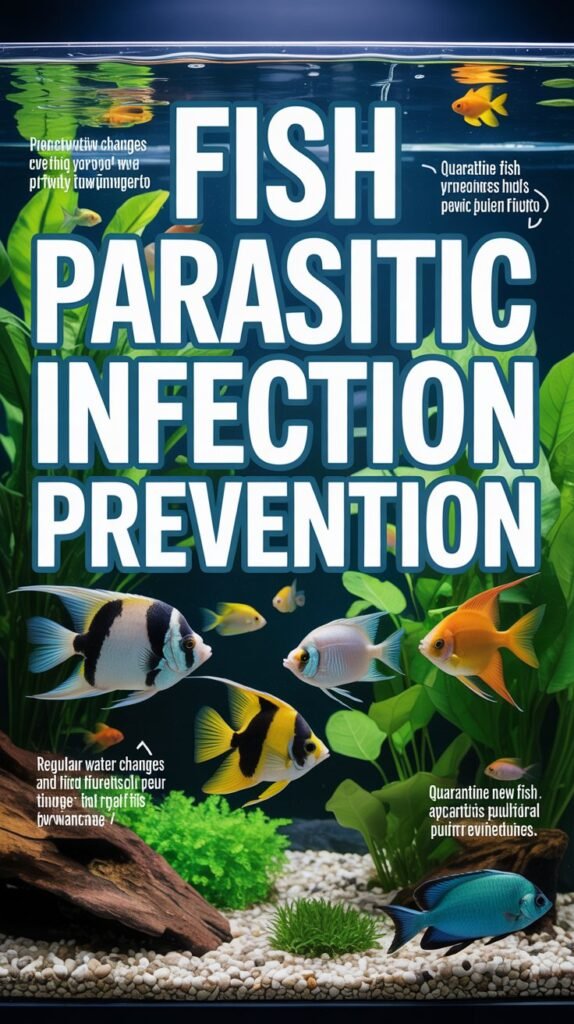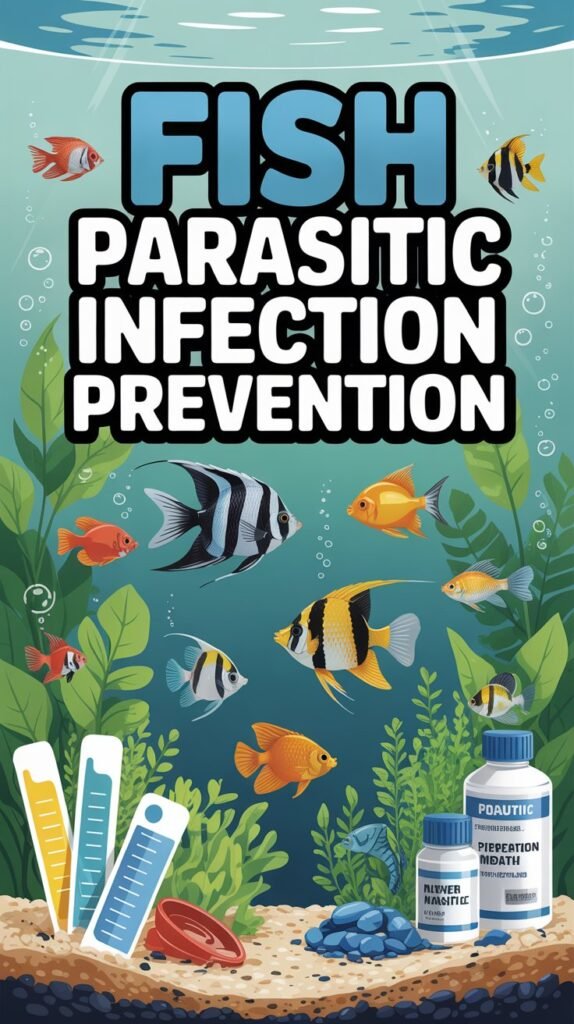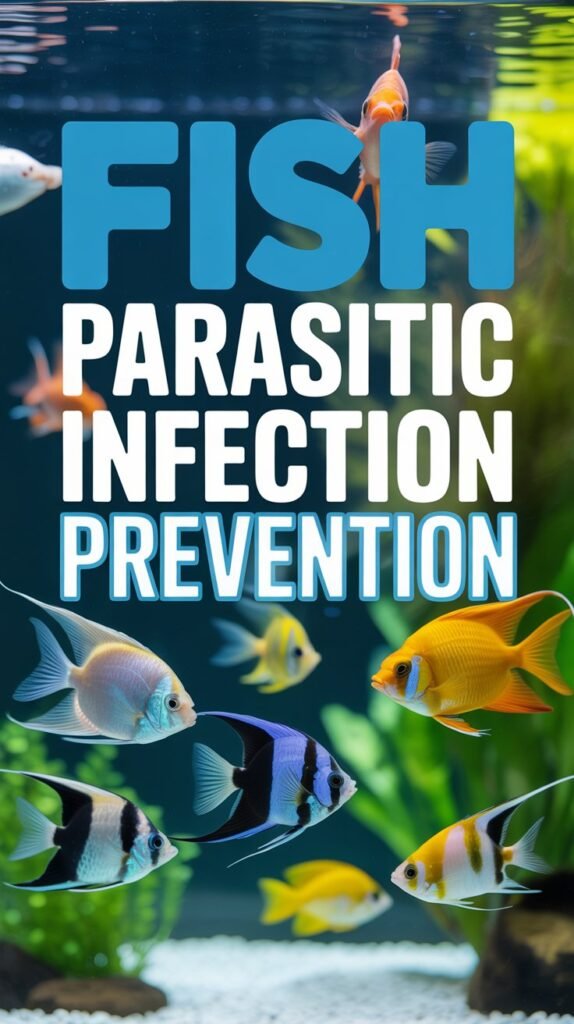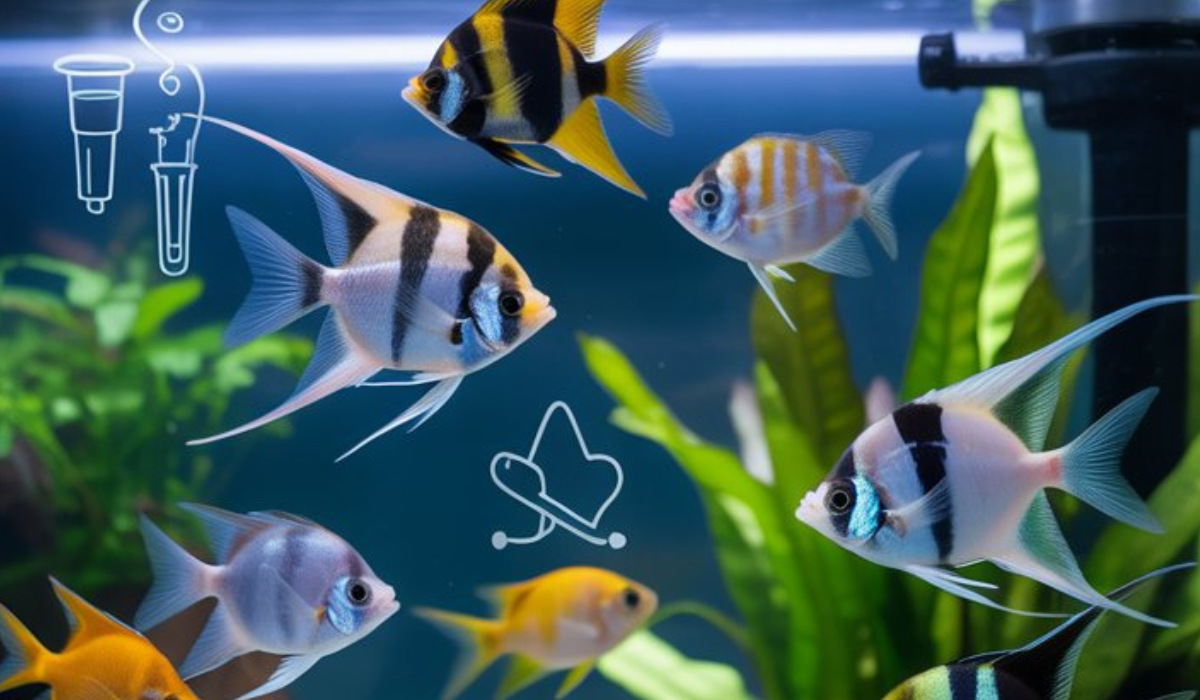Parasitic infections are among the oldest and most widespread health problems affecting humans. From microscopic protozoa to visible worms and insects, parasites can infect almost every organ in the body — the intestines, skin, lungs, liver, brain, and even the blood.
According to the World Health Organization (WHO), millions of people worldwide suffer from parasitic infections each year, especially in tropical and developing regions. However, these infections are not limited to certain countries — they can occur anywhere due to contaminated food, poor hygiene, unsafe water, or insect bites.
The good news? Most parasitic infections can be prevented with simple, consistent habits. This in-depth guide explains everything you need to know about parasitic infection prevention, including how parasites spread, personal hygiene tips, safe food and water practices, environmental measures, and more.
What Are Parasitic Infections?
A parasitic infection occurs when parasites — organisms that live on or inside another organism (the host) — invade the body, feed on nutrients, and cause harm.
Unlike bacteria and viruses, parasites cannot live independently. They rely entirely on their host for survival, growth, and reproduction.

There are three main types of parasites that cause infections in humans:
- Protozoa – Single-celled organisms that multiply inside the body.
Examples: Giardia lamblia, Plasmodium (malaria), Entamoeba histolytica. - Helminths – Worm-like parasites that live in the intestines or tissues.
Examples: Tapeworms, Roundworms, Hookworms, Pinworms. - Ectoparasites – External parasites that live on the skin or hair.
Examples: Lice, Ticks, Fleas, Mites (scabies).
Each type of parasite spreads differently and requires specific prevention strategies.
How Parasitic Infections Spread
Understanding how parasites spread is the first step toward preventing them. Here are the most common transmission routes:
1. Contaminated Food or Water
Parasites such as Giardia and Entamoeba histolytica often enter the body through food or water contaminated with feces.
2. Poor Hygiene
Unwashed hands after using the bathroom or before eating can transfer parasite eggs to the mouth.
3. Insect Bites
Mosquitoes, sandflies, and ticks transmit parasites that cause malaria, leishmaniasis, and babesiosis.
4. Contact with Infected Animals
Handling pets or livestock without proper hygiene can spread worms or protozoa.
5. Skin Penetration
Certain parasites, like hookworms, enter through bare skin when walking on contaminated soil.
6. Sexual Contact
Parasites such as Trichomonas vaginalis are spread through unprotected sex.
Why Prevention Is So Important
While most parasitic infections are treatable, prevention is the safest and most cost-effective approach.
If left untreated, parasites can cause severe problems such as:
- Malnutrition and anemia
- Chronic fatigue and weight loss
- Organ damage (liver, lungs, brain)
- Developmental delays in children
- Pregnancy complications
By following preventive practices, you can protect not only yourself but also your family and community.
General Parasitic Infection Prevention Strategies
Here are practical, scientifically proven ways to prevent parasitic infections in your daily life.
1. Practice Proper Hand Hygiene
Handwashing is the single most effective defense against parasitic infections.
- Wash hands with soap and clean running water for at least 20 seconds.
- Do this especially:
- After using the toilet
- Before preparing or eating food
- After handling pets or soil
- After changing diapers
If clean water isn’t available, use an alcohol-based hand sanitizer.
2. Drink Safe and Clean Water
Contaminated water is a major source of parasitic infections like giardiasis and amoebiasis.
- Always drink filtered, boiled, or bottled water.
- Avoid ice cubes from unverified sources.
- Use water filters certified for parasite removal (such as those labeled for “Giardia” or “Cryptosporidium”).
- In rural or camping areas, purify water using iodine tablets or portable UV filters.
3. Eat Cooked and Properly Washed Food

Raw or undercooked food often harbors parasites.
- Cook meat, poultry, and seafood to safe internal temperatures.
- Wash fruits and vegetables thoroughly under running water.
- Avoid raw salads or street food in areas with poor sanitation.
- Do not eat meat from unknown or uninspected sources.
- Use separate cutting boards for raw meat and vegetables to prevent cross-contamination.
4. Avoid Walking Barefoot
Certain parasites like hookworms can penetrate the skin through bare feet.
- Always wear shoes or sandals, especially when walking on soil or grass.
- Children should avoid playing barefoot in dirt or sandboxes where animals roam.
5. Maintain Personal Hygiene
Parasite eggs can easily spread through direct contact or unclean environments.
- Bathe daily using clean water.
- Keep fingernails trimmed and clean.
- Change undergarments and bed linens regularly.
- Avoid sharing personal items such as towels, combs, or razors.
6. Practice Safe Sex
Sexually transmitted parasites, such as Trichomonas vaginalis, can be prevented through safe sexual practices.
- Always use condoms during sexual intercourse.
- Get regular sexual health screenings.
- Avoid unprotected contact with multiple partners.
7. Control Insect Vectors
Insects like mosquitoes and ticks are carriers of several parasitic diseases. Prevent bites by:
- Applying insect repellents containing DEET or picaridin.
- Sleeping under insecticide-treated bed nets in malaria-endemic areas.
- Installing window screens and using fans to deter mosquitoes.
- Wearing long sleeves and pants when outdoors.
- Removing stagnant water where mosquitoes breed.
8. Practice Pet and Animal Hygiene
Pets can carry intestinal worms and transmit them to humans.
- Deworm pets regularly under veterinary guidance.
- Clean litter boxes daily using gloves.
- Avoid allowing pets to lick your face or food.
- Wash hands after touching animals.
If you own livestock or poultry, ensure regular veterinary checks and keep their living areas clean.
9. Maintain Clean Living Conditions
Parasites thrive in dirty environments.
- Dispose of garbage properly.
- Keep toilets clean and disinfected.
- Avoid open defecation; always use sanitary latrines.
- Prevent rodents and flies from entering your home.
- Ensure proper ventilation and sunlight to reduce humidity that supports parasite survival.
10. Avoid Swimming in Contaminated Water
Some parasites, like Schistosoma, live in freshwater ponds and rivers.
11. Regular Deworming Programs
In high-risk areas, periodic deworming is vital for both adults and children.
- WHO recommends mass deworming every 6–12 months in endemic areas.
- Common medications: Albendazole or Mebendazole.
- Deworm pets and livestock as well to break the infection cycle.
12. Safe Food Handling and Storage
- Keep raw and cooked foods separate.
- Refrigerate leftovers immediately.
- Avoid using the same utensils for raw and cooked foods.
- Regularly disinfect kitchen surfaces.
13. Educate Your Family and Community
Raising awareness is crucial for long-term prevention.
- Teach children about handwashing and hygiene.
- Encourage community sanitation programs.
- Share information about symptoms and risks of parasitic infections.
Parasitic Infection Prevention in Different Environments

1. In Homes
- Use clean water for drinking and cooking.
- Disinfect kitchen counters regularly.
- Keep pets dewormed.
- Wash bed linens frequently, especially in case of lice or mites.
2. In Schools
- Encourage handwashing before meals.
- Provide clean drinking water facilities.
- Conduct regular deworming and hygiene awareness programs.
3. In Workplaces
- Maintain clean washrooms.
- Ensure safe food handling in canteens.
- Provide mosquito control measures in outdoor worksites.
4. During Travel
Travelers are at high risk of contracting parasites from contaminated food, water, or bites.
Travel Prevention Tips:
- Drink bottled or boiled water only.
- Avoid raw fruits unless you can peel them yourself.
- Carry insect repellents and bed nets.
- Get pre-travel vaccinations or prophylactic medications (e.g., malaria prevention pills).
Natural and Herbal Support for Parasitic Prevention
While hygiene remains the primary prevention method, some natural options may help reduce the risk of parasitic infections:
- Garlic: Has natural antiparasitic and antimicrobial properties.
- Pumpkin Seeds: Contain compounds that can help expel intestinal worms.
- Turmeric: Supports gut health and immunity.
- Papaya Seeds: Traditionally used to control intestinal worms.
- Probiotics: Maintain a healthy gut microbiome that discourages parasite colonization.
⚠️ Note: These are preventive or supportive measures, not substitutes for medical treatment or hygiene practices.
Public Health Perspective on Parasitic Infection Prevention
Governments and health organizations play a vital role in preventing parasitic diseases through:
- Clean Water Supply Projects – Ensuring access to safe drinking water.
- Sanitation Programs – Building toilets and waste management systems.
- Vector Control Campaigns – Using insecticides and awareness drives.
- Community Deworming Initiatives – Especially in schools and rural areas.
- Health Education – Teaching people about hygiene and safe food practices.
Collective community action is essential for eradicating parasitic infections from endemic regions.
What to Do If You Suspect a Parasitic Infection
If you notice symptoms such as prolonged diarrhea, unexplained fatigue, itching, or weight loss:
- See a doctor immediately.
- Provide a stool or blood sample for laboratory analysis.
- Follow prescribed treatment with antiparasitic medications.
- Avoid self-medication — incorrect dosing can lead to resistance or recurrence.
- Maintain strict hygiene during and after treatment to prevent reinfection.
Long-Term Habits for Staying Parasite-Free
- Eat a balanced, nutrient-rich diet to strengthen immunity.
- Avoid overuse of antibiotics (which can disrupt gut health).
- Keep vaccinations up to date for diseases like malaria.
- Continue regular deworming and health checkups.
- Educate others — prevention works best when everyone participates.
Conclusion
Parasitic infections can affect anyone — regardless of age, location, or lifestyle. However, with awareness and consistent hygiene habits, you can dramatically reduce your risk.
The key to parasitic infection prevention lies in:
- Clean water and safe food
- Proper sanitation and hygiene
- Vector control and deworming
- Health education and awareness
Small daily actions — like washing hands, cooking food thoroughly, and wearing shoes — can save you from months of illness. Stay proactive, stay clean, and stay parasite-free.
FAQs About Parasitic Infection Prevention
1. How can I prevent parasitic infections naturally?
Maintain good hygiene, wash fruits and vegetables thoroughly, drink safe water, and include natural antiparasitic foods like garlic and pumpkin seeds in your diet.
2. How often should I deworm?
In endemic regions, deworming every 6–12 months is recommended. Consult your doctor for a suitable schedule.
3. Can parasites spread from pets to humans?
Yes. Pets can carry worms like roundworms and hookworms. Always deworm your pets regularly and wash your hands after handling them.
4. Does boiling water kill parasites?
Yes. Boiling water for at least one minute kills most waterborne parasites, including Giardia and Cryptosporidium.
5. Can parasites live on unwashed fruits and vegetables?
Absolutely. Many parasite eggs and cysts stick to soil or water residue. Always wash produce thoroughly before eating.
6. What are the most common parasitic diseases worldwide?
Malaria, giardiasis, amoebiasis, hookworm infection, and schistosomiasis are among the most widespread.
7. Is swimming in rivers or lakes safe?
Avoid swimming in stagnant or unknown freshwater bodies, especially in regions with schistosomiasis or other waterborne parasites.
8. Can hand sanitizer kill parasite eggs?
Hand sanitizers can kill many germs but may not destroy all parasite eggs. Washing hands with soap and water is more effective.
9. How can travelers prevent parasitic infections?
Drink bottled water, avoid raw foods, use insect repellent, and sleep under mosquito nets. Carry preventive medications if visiting malaria-endemic areas.
10. Why is deworming children important?
Children are more vulnerable due to poor hygiene habits and developing immune systems. Regular deworming ensures healthy growth and prevents malnutrition.

